Truthdigger of the Week: Colin Kaepernick, for Refusing to Stand During the National Anthem
In his act of protest against racial injustice in the U.S., the San Francisco 49ers quarterback has taken a lot of hits. But he’s not backing down and has succeeded in igniting an important debate.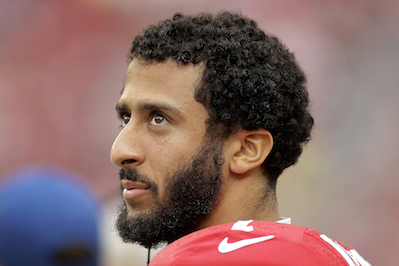 1
2
3
1
2
3
Every week the Truthdig editorial staff selects a Truthdigger of the Week, a group or person worthy of recognition for speaking truth to power, breaking the story or blowing the whistle. It is not a lifetime achievement award. Rather, we’re looking for newsmakers whose actions in a given week are worth celebrating.
The first time Colin Kaepernick refused to stand for the national anthem as it blasted through a football stadium, the San Francisco 49ers quarterback joined the ranks of famous athletes like John Carlos, Muhammad Ali and Jim Brown, among others, whether he knew it or not. His silent protest, at first unnoticed by the media, instantly became fodder for headlines after the third game at which he decided not to stand to honor the flag of a nation he feels is not honoring its citizens.
Kaepernick’s thoughtful explanations regarding his decision to peacefully protest racial injustice show his willingness to back up his actions with his words, and vice versa. Below are among his reasons for refusing to stand for the anthem, according to The Washington Post:
SUPPORT TRUTHDIG
“There are bodies in the street and people getting paid leave and getting away with murder” … Kaepernick said he will continue to sit during the playing of the anthem before games until “there’s significant change and I feel like that flag represents what it’s supposed to represent in this country—is representing the way that it’s supposed to.” … “Ultimately it’s to bring awareness and make people realize what’s really going on in this country. There are a lot of things that are going on that are unjust, people aren’t being held accountable for, and that’s something that needs to change. That’s something that—this country stands for freedom, liberty, justice for all. And it’s not happening for all right now … the two presidential candidates that we currently have also represent the issue that we have in this country right now. … “I mean, you have Hillary [Clinton] who’s called black teens or black kids super-predators. You have Donald Trump who’s openly racist. I mean, we have a presidential candidate who’s deleted emails and done things illegally and is a presidential candidate. That doesn’t make sense to me, because if that was any other person, you’d be in prison. So what is this country really standing for?”The ideas behind Kaepernick’s protest are powerful and multifaceted. By refusing to stand for the national anthem, he is standing up for the most vulnerable members of our society, those who are treated differently based on the color of their skin in a country in which systemic racism runs as rampant as it ever has, often in new forms, hiding behind different disguises. His outrage at police violence and racial profiling is based on experiences he and people close to him — and, perhaps most importantly, most people of color in the U.S. — have had to endure. During a recent interview, the football player described an incident in which police entered his home, pointing guns at him and a teammate because they were moving boxes out. Some critics have said that because of his status as a wealthy athlete, he hasn’t had to endure the kind of discrimination that others do. But those people are simply wrong. Aside from ignoring his own experience, they seem to forget the numerous incidents in which even the most famous people of color among us, such as actor Chris Rock and the athletes mentioned in an excellent Los Angeles Times piece, are treated as suspected criminals solely on the basis of their skin tone. That’s the thing about racism: It rarely takes into account the actual targeted human being. Police brutality should never be accepted or justified; neither should any form of hate crime prompted by the victim’s appearance, beliefs or gender — or anything at all, really. Perhaps even more egregious are the ways in which our entire society is structured to keep people of color in poverty or how it harshly punishes and disproportionately incarcerates some races over others for the same crimes. Some responses to Kaepernick’s personal protest highlight the racism bubbling through this nation: accusations that he lacks patriotism, attempts to discredit his form of protest, unfriendly advice that the American-born athlete move to a more “suitable” country. Yet, it’s hard to imagine any place more suitable for a person who is using his body and his voice to fight for the rights of everyone, reminding us we were all created equal — the founding tenet of the United States, as imperfect as the country is. Your support matters…
Independent journalism is under threat and overshadowed by heavily funded mainstream media.
You can help level the playing field. Become a member.
Your tax-deductible contribution keeps us digging beneath the headlines to give you thought-provoking, investigative reporting and analysis that unearths what's really happening- without compromise.
Give today to support our courageous, independent journalists.

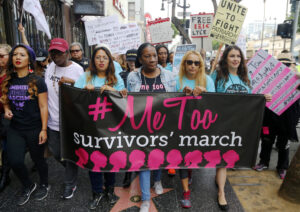

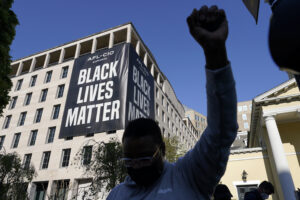
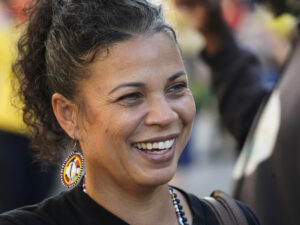
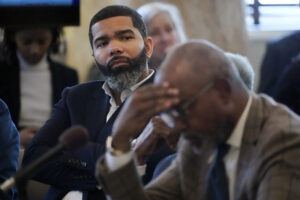
You need to be a supporter to comment.
There are currently no responses to this article.
Be the first to respond.